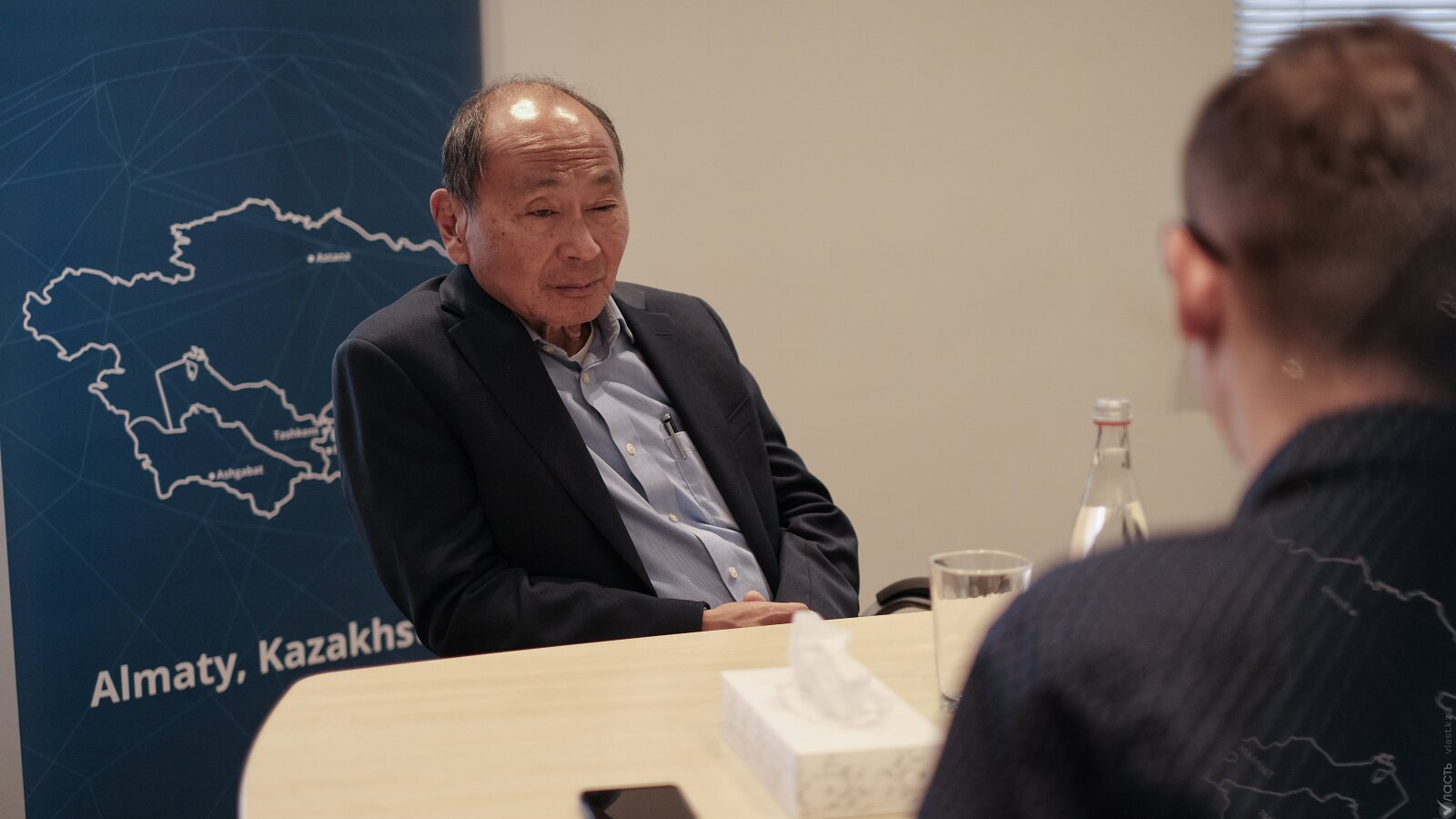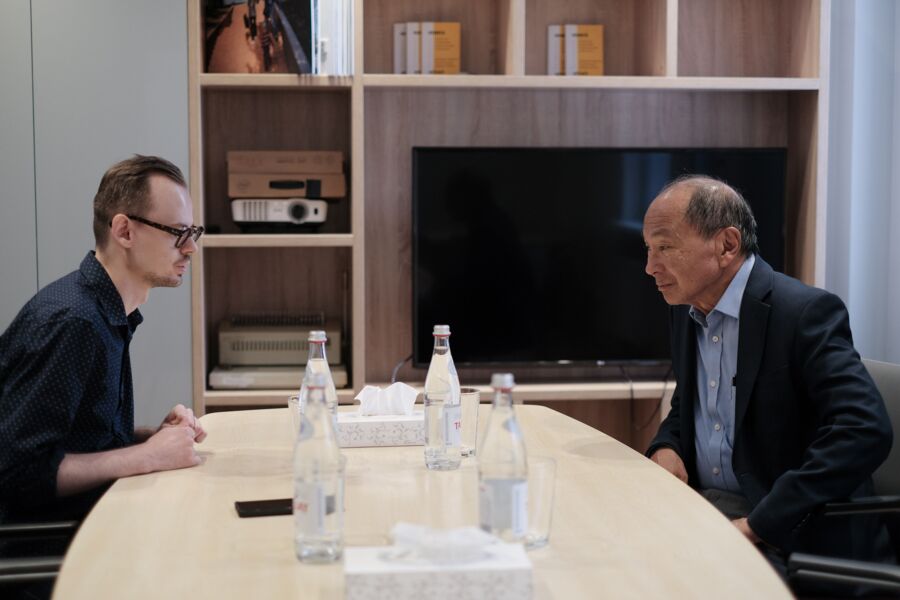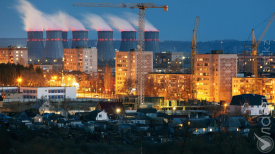- ВКонтакте
- РћРТвЂВВВВВВВВнокласснРСвЂВВВВВВВВРєРСвЂВВВВВВВВ
Francis Fukuyama, senior fellow at Stanford University’s Institute for International Studies, visited Almaty during a book tour for his latest publication, “Liberalism and Its Discontents”. In an interview with Vlast, Fukuyama talked about liberalism and the threats it faces, as well as the current political crises and possible ways to overcome them.
During your press tour, you dodged questions regarding the problems of liberalism. Do you not consider the current situation - with extreme social inequality, climate degradation, economic deadlock, and wars - a structural crisis of liberalism?
These are all different problems. There are different critiques on the left and on the right. The main critique on the left has to do with the question of equality. And that centers around economic inequalities that were created in liberal societies. In my book, I argue that there's no reason that a liberal society needs to tolerate such a degree of inequality. But there is a set of economic concepts that arose in the 1980s and 1990s, which pushed out the state and tolerated the widespread growth of powerful corporations and oligarchs. There are policies that can correct this, I believe. And in fact, we already see a pushback. For example, in the United States, we have come out of this neoliberal period.
Do you think so?
Oh, definitely. That's what Joe Biden's policies are all about, especially his major bills aimed at restoring domestic manufacturing and protecting workers. There is still a lot that can be done to strengthen social protections, and the pushback is not just from capital. There is also a cultural opposition to government as such, and this is something almost unique to the United States. The critique from the right, I think, is more dangerous, because these populist right-wing nationalists have actually succeeded in gaining power. Donald Trump could come back next year. But you also have people like [India’s] Narendra Modi, [Turkey’s] Recep Tayyip Erdogan, [Hungary’s] Viktor Orban, who want to create a sense of national community around a subset of the whole society. They do not accept the liberal premise of the universal equality of all human beings. Instead, they want to emphasize either a religious or a national group as central to their country's identity.
And their response reflects some people’s dissatisfaction with liberal universalism. They want to have a tighter sense of community. I think the problem is that we live in very diverse societies, and liberalism was created as a means for people in diverse societies to live peacefully with one another. For this reason, I think that [populist right-wing nationalism] is ultimately a dangerous trend.
Do you think that right-wing populism can counterbalance liberalism and neoliberalism as a set of ideas, political framework, and institutions?
For nationalists, it is difficult to create a universalist platform, because every nation is different. A Hungarian nationalist is different from a Russian or French nationalist. All of these right wing movements are quite different from the threat that Marxism-Leninism posed [around a century ago], because the latter pretended to be a universal doctrine, applicable to all societies. Liberalism itself has a universalistic dimension: All human beings have a right to freedom.
I think these right wing nationalist movements are necessarily cautious. They have become allies to certain left movements because they both refuse a liberal economic policy. They want the state to interfere [in the economy]. [Right-wing leader] Marine LePen in France wants all the social protections French leftist traditionally demanded. Donald Trump did not necessarily set out to dismantle the American welfare state. And yet any cooperation between left and right is unlikely, because they are culturally quite different.
A century ago, liberalism was in a difficult situation, just like today. But what was peculiar to that time is the existence of a political alternative. The Soviet Union was an awful state in many ways, but it made people in the West question the global order and how society should function. Is there a danger for liberalism now that progressive alternatives are missing?
I think that there is no systematic alternative. While Russia and China can cooperate, they are different societies, based on different principles. The Chinese Communist Party continues to profess a belief in communism or Marxism-Leninism, which the Russians gave up a long time ago. A nationalist movement is not necessarily going to share a common cause with other nationalist movements. Russia and Poland, for example, both have nationalists, but they hate each other. A binding ideological commitment between Russia, China, Iran, and North Korea is missing, other than their opposition to Western liberalism.
Around 15 years ago, we faced the Global Financial Crisis, which was a destructive factor for liberalism. Do you expect something even more disastrous in the future?
Exogenous crises that come from an unexpected source can never be ruled out. The 2008 crisis illustrated that we have learned several social lessons from the past. In 1933, there was a major banking crisis because the Federal Reserve and other central banks withdrew liquidity from the system, which caused the collapse of commercial banks and made the Great Depression much worse than it would have been otherwise.
In 2008, instead, all of the central banks understood that they had to flood the world with liquidity, so that prices never rose as much as in the early 1930s. This was the reflection of better knowledge, better coordination among banks. I think institutional correctives can be put in place.
But this is true for the largest economies, not peripheral countries that depend on the richest and, in addition, bear the burden of high sovereign debt.
I am not sure that is true. Back in the 1970s and 1980s, as a result of the oil shocks, every country in Latin America experienced a sovereign default - basically was cut off from credit markets - and this triggered major recessions or depressions in Sub-Saharan Africa. In response to that, neoliberalism got its start. Argentina, Brazil, and Mexico were all experiencing hyperinflation, they lost a generation’s worth of growth and their situation was actually much worse than anything that has happened in the past decade. Policy adjustments were implemented: for example, every country now has created an independent central bank. No country, except for Argentina or Venezuela and a few others, is going to make the same mistakes that they made back in the 1980s, that is trying to deal with budget deficits [simply] by printing money. These countries did not learn that lesson.
The trouble is that we will be hit by things that we cannot foresee. It is extremely likely that there will be another pandemic, and it will be different from the COVID-19 pandemic. The disease could be much worse, with much higher mortality rates that will require more serious adjustments. Who knows whether this is going to be politically acceptable in some countries. Yet, the basic resilience of a lot of societies has gotten better over time.
What are your expectations about the peripheral regions of the world? How can countries like Kazakhstan, which are dependent on larger countries, voice their problems and perhaps propose changes in a global system full of contradictions and discontents?
Look, Kazakhstan is not going to change the global liberal system. You do not have enough weight in the global order to expect to be able to do that. And a country like Kazakhstan has not much of an alternative to being a relatively open economy. Without oil and gas exports, after all, you would not have that kind of per capita income, not even close to that. You would be more like Afghanistan. And Afghanistan as a country that has closed itself off from trade and capital flows is not a particularly attractive model. You don't want to become excessively dependent on any single country. So the possibility of dealing with the European Union, the United States, Japan, and Turkey, not just Russia and China, is important because it gives you freedom of action [and takes away] leverage against you. Given your geographical location, however, there are just limits to how much you can ultimately control your economic fate.
How can such “smaller” countries gain more agency and become more autonomous?
I'm not sure that you are going to convince the great powers of the world to change just because you are not happy with the situation. You should just take advantage of the opportunities that you have to exercise independence.
So there is no chance to even have a discussion about redesigning the world order?
I do not think that Kazakhstan’s main problem is the international situation. Most of the obstacles to growth and independence are internal. If you had a more open economic and political system, a more vibrant private sector, and more opportunities for entrepreneurship, society would later gain more independence and autonomy. This is an internal decision that Kazakhstan as a society can make. This is where you need to start rather than demanding that the international system change. It simply will not change, in response to a relatively small player.
The people of many countries have questioned liberalism, so should we maybe think about changing something?
I guess you would have to ask yourself: What is the alternative? What is the kind of political system that you think would be better than liberalism? Most of the existing alternatives are actually just modifications of liberalism. One thing people learned because of the 2008 crisis is that we need to regulate big banks much more strictly, and that is a change that was made. In terms of inequality, there is a need for renewed attention to social policy to different forms of redistribution, so that inequality does not get out of hand.
So you still see that liberalism can help solve the problems we face, only by taking small steps to fine-tune its institutions?
One of the main problems now is that people are unhappy with the current system and they want a radical change, but they do not have a coherent concept of what kind of system they want instead of this. In Latin America, there are a number of presidents that have been elected in the last two-three years that dislike the system, but they really do not have a platform or the ability to actually shift their countries towards something very different. This is dangerous. That is the threat that Donald Trump poses. He thinks that the American system is corrupt, and he is going to destroy as much of it as he can. But what is he going to replace it with?
This is a shortened and edited version of the interview that took place in Almaty on August 22.
Поддержите журналистику, которой доверяют.









